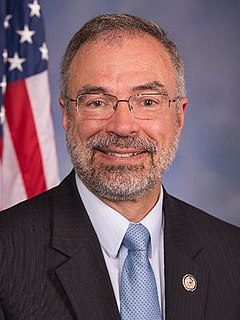A Quote by Andrew P. Harris
People would have a health care insurance policy they can call their own. They could choose one that exactly fits their families' needs and their budgets, be able to take that coverage with them from job to job and be able to fire their insurance company if it doesn't treat them well.
Related Quotes
My biggest fear, that 27 percent of Americans under 65 have an existing health condition that, without the protections of the Affordable Care Act, would mean they would - could be automatically excluded from insurance coverage. Before the ACA, they wouldn't have been able to get insurance coverage on the individual market, you know, if you're a freelancer or if you had a small business or the like.
The Affordable Care Act is a huge problem. [Repealing the ACA is] going to have huge implications. We have millennials that live in Boston that are on their parents' health insurance. The businesses have hired them and have been able to hire more people because they have been able to be on their own health insurance. We have seniors in our city who have preexisting conditions, or something called a "donut hole," which is a prescription drug [gap] in Medicare. Whatever changes they make could have detrimental effects on people's health care, but also on the economy.
Health insurance in Germany continues with no change if you lose a job. We do know very well that people who become unemployed are at an increased risk of becoming ill, and therefore becoming unemployed is about the worst time to lose health insurance. So therefore, everyone who loses a job remains in exactly the same insurance system he is in.
While Free Choice Vouchers didn't fulfill my vision of a health care system in which every American would be empowered to hire and fire their insurance company, they were a foothold for choice and competition and a safety valve for Americans whose employers are already forcing them to bear more and more of their family's health insurance costs.
This is something the Democrats have talked about, and a goal we share, getting everyone insured, and solving the issue in a Republican way, which is applying a personal responsibility principle (individual mandate), reforming the market (more strictly regulating the insurance companies), and allowing people to buy private health care insurance that they can take with them from job to job that's entirely affordable. So it's a Republican way of solving a problem that we face as a nation.
As a physician and a U.S. senator, I have warned since the very beginning about many troubling aspects of Mr. Obama's unprecedented health-insurance mandate. Not only does he believe he can order you to buy insurance, the president also incorrectly equates health insurance coverage with medical care.
We have health insurance companies playing a major role in the provision of healthcare, both to the employed whose employers provide health insurance, and to those who are working but on their own are not able to afford it and their employers either don't provide it, or don't provide it at an affordable price. We are still struggling. We've made a lot of progress. Ten million Americans now have insurance who didn't have it before the Affordable Care Act, and that is a great step forward.
Health insurance, which is exceedingly difficult to secure as an individual in New York. Obamacare, while certainly better than nothing, is pretty awful, and if you have a complicated health history, as I do, you need premium insurance, which means private insurance. The challenge, though, is finding a company that will give you the privilege of paying up to $1,400 a month for it. When I didn't have a job, I spent more time thinking about insurance - not just paying for it, but securing it in the first place - than I wanted to.
Think of an economy where people could be an artist or a photographer or, eh, a writer without worrying about keeping their day job in order to have health insurance, or that people could start a business and be entrepreneurial and take risk but not be job-locked because a child has asthma or someone in the family is bipolar. You name it. Any condition is job-blocking.































